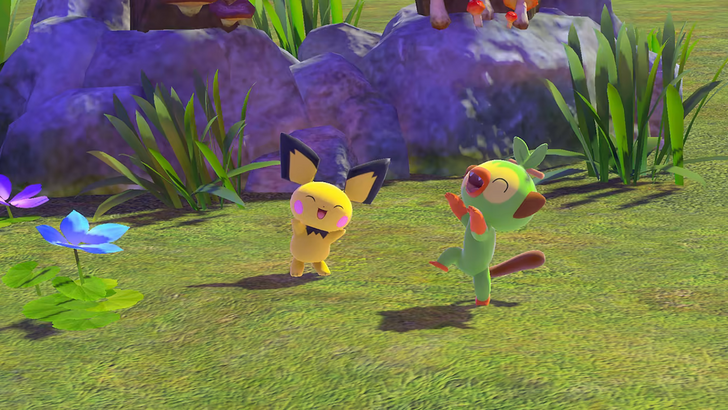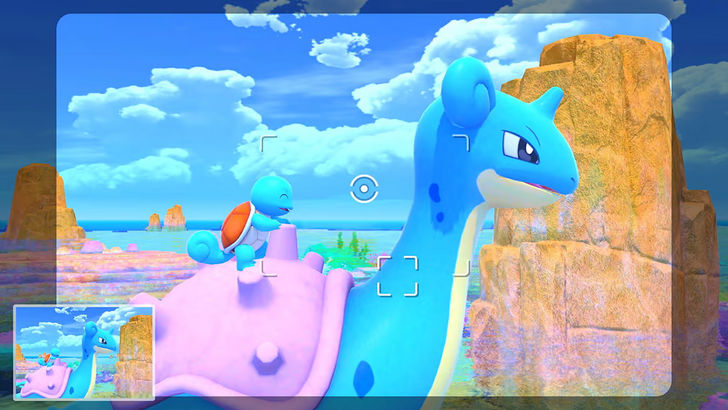 Nintendo makes history in China with the debut of New Pokémon Snap. This article explores the significance of this release and its implications for the Pokémon franchise in the Chinese market.
Nintendo makes history in China with the debut of New Pokémon Snap. This article explores the significance of this release and its implications for the Pokémon franchise in the Chinese market.
Pokémon's Arrival in China
A Landmark Release
 On July 16th, New Pokémon Snap, initially launched globally on April 30th, 2021, became the first officially released Pokémon game in China. This marks a significant turning point, considering China's past video game console ban (imposed in 2000 and lifted in 2015). The ban, stemming from concerns about negative impacts on children's development, effectively kept Pokémon out of the Chinese market for years. This official release signals a new chapter for Nintendo and Pokémon fans in China.
On July 16th, New Pokémon Snap, initially launched globally on April 30th, 2021, became the first officially released Pokémon game in China. This marks a significant turning point, considering China's past video game console ban (imposed in 2000 and lifted in 2015). The ban, stemming from concerns about negative impacts on children's development, effectively kept Pokémon out of the Chinese market for years. This official release signals a new chapter for Nintendo and Pokémon fans in China.
Nintendo's strategic expansion into the vast Chinese gaming market has been a long-term goal. Their 2019 partnership with Tencent to bring the Nintendo Switch to China paved the way for this momentous Pokémon release. New Pokémon Snap's launch represents a major step in Nintendo's strategy to penetrate one of the world's largest and most profitable gaming markets, a move complemented by plans to release other key titles in the near future.
Future Nintendo Titles in China
 Following New Pokémon Snap, Nintendo has confirmed several upcoming releases in China, including:
Following New Pokémon Snap, Nintendo has confirmed several upcoming releases in China, including:
⚫︎ Super Mario 3D World + Bowser’s Fury ⚫︎ Pokémon Let’s Go, Eevee and Pikachu ⚫︎ The Legend of Zelda: Breath of the Wild ⚫︎ Immortals Fenyx Rising ⚫︎ Above Qimen ⚫︎ Samurai Shodown
This ambitious rollout demonstrates Nintendo's commitment to establishing a strong presence in China, leveraging its popular franchises and new releases to capture a considerable market share.
Pokémon's Unofficial Chinese Legacy
 The surprise among international fans regarding China's long-standing console ban highlights the unique history of Pokémon in the region. Despite the ban, a substantial fanbase developed, with players resorting to overseas purchases or counterfeit versions. Smuggling attempts also occurred, as evidenced by a recent incident involving a woman smuggling 350 Nintendo Switch games.
The surprise among international fans regarding China's long-standing console ban highlights the unique history of Pokémon in the region. Despite the ban, a substantial fanbase developed, with players resorting to overseas purchases or counterfeit versions. Smuggling attempts also occurred, as evidenced by a recent incident involving a woman smuggling 350 Nintendo Switch games.
One noteworthy attempt to introduce Nintendo hardware to China was the iQue Player, a collaboration between Nintendo and iQue launched in the early 2000s. This compact Nintendo 64 variant aimed to counter rampant piracy.
 A Reddit user aptly noted the remarkable global success of Pokémon without official access to the Chinese market. Nintendo's recent actions signify a strategic shift, aiming to integrate this previously untapped market into its global success story.
A Reddit user aptly noted the remarkable global success of Pokémon without official access to the Chinese market. Nintendo's recent actions signify a strategic shift, aiming to integrate this previously untapped market into its global success story.
The gradual introduction of Pokémon and other Nintendo titles to China represents a pivotal moment. As Nintendo navigates this complex market, the enthusiasm surrounding these releases suggests a bright future for gaming in China and beyond.















